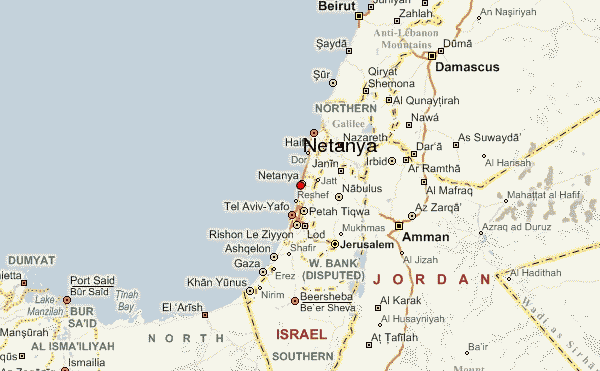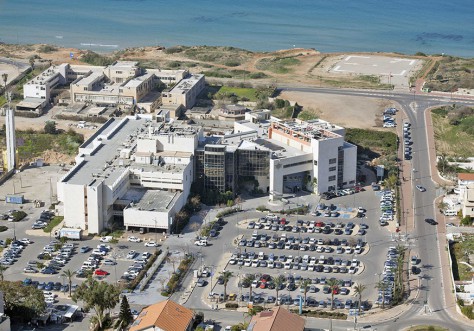Nathaniel's Sorrow
Character workshop
Act III
#1: Netanya, Israel -- but in the from of flashback, with main character in a coffee shop in Portland, OR while he tries to write a novel about his experience in Netanya, Israel during the Passover MassacreDate: March 27th, 2012 (10 year after the Passover Massacre in 2002)
Place:
We will start the journey with the main character as he goes to his favorite coffee shop on upper Hawthorne, in Portland Oregon (I have a certain coffee shop in mind -- one that has a grand-opening this Saturday (congrats boys!)) to continue to work on his memoirs from his time as a medical resident who was working at Laniado Hospital as a Global Health Trip, when Hamas used a suicide bomber at the Park Hotel, where 30 civilians were killed and 140 were injured. This attack was the most deadly during the 2nd Intifada. Our character is not Jewish, and went to Israel for no particular reason other than being intrigued with their culture and heritage. He was a 2nd year Internal Medicine resident doctor when he went to Israel and was very overwhelmed when the attack happened. He was enlisted to help triage the victims in the parking lot of the hospital. It was a turning point in his life, and he has tried to put into writing his experience and what he took from the incident for the past few years, with little success. The 10 year anniversary is this very day, and he is determined to make much progress with his writing.
Laniado Hospital has a unique and interesting history. In short, it was founded by a rabbi who desired to build a hospital that would happily treat everyone -- a credo they still strive to honor to this day. Rabbi Yekutiel Yehuda Halberstam was in the concentration camps for years, and was on a death march to Dachau, where he was shot in the shoulder. He knew that if he requested treatment, he was as good as dead. He vowed to God that if he survived the march and the war, he would build a hospital that would treat every person, no matter creed, race or religion. This is where Laniado hospital comes from.
Ryan Moore works as a Hospitalist in Portland, and has since he finished his GME training. In the past 10 years he has married, had 2 children and is engaged in the community and with his family and friends. By all accounts he is well adjusted. And, he is -- except for the few occasions he tries to evoke the memories from the parking lot triage and the subsequent fear that followed while he worked the rest of his time in Netanya. This dynamic will be expanded on in the motivation and character section -- but the key is simple: humans are capable of adapting, growing and thriving in the face of adversity.
I'm compelled to use Netanya and Laniado Hospital during the Passover Massacre since I actually went and spent a month at that hospital as a medical student. I saw nothing like this while I was there, of course. I did here from doctors, nurses and friends that I made there about that event and what it was like during that time when suicide bombings were happening in Netanya. There were other suicide bombings in the town -- one at a busy, popular market that I spent quite a bit of time buying vegetable and such during my time there. I understand that there are terrible things happening to all of the different peoples in that area of the world, and this story is in no way an indictment on either side. I also realize that not aiming for an indictment of one side or another can be harshly judged, as well. So it is with trepidation I enter this particular gambit but I believe in writing what we know. And with that, a doctor staring at his laptop in a Portland coffee shop while lost deep in thought is something I know.
Motivation:
As above, I do want this to be a feel goodish story, in that this isn't about politics, or an exploration of PTSD, or even concerned with redemption -- but about resilience and that, simply, life goes on. In some cases life doesn't go on -- an obvious statement, but such a universal truth, one that supercedes just about every other common human experience. I assume there are people who have lived without ever seeing the sun, or some other crazy common aspect, but those people, unfortunate as it is to live any amount of time without ever seeing the sun, sky or moon, will have or will die.
The process of becoming a physician, of which I am almost one, affords ample opportunity to deal with death and dying. There many people in our society who have not seen a dead body outside of the funeral setting. The funeral home goes to incredible lengths to make the corpse look as "undead" as possible. And I get it -- death is ugly and a tough thing to digest; but despite all of that, it is something that can be dealt with in a healthy way and I strongly believe denial is the most insidious pathological ways of digestion. Why is the United States so concerned over broadcast naked body parts relative to gun violence? This is an aspect of our society that has been explored by others with more wisdom that I have but it does speak to how we digest death in our culture. But this is also not what the story is about, either -- but is a component of why I wish to tell a story involving such a horrific real-life event.
#1: Ryan Moore
A 40 year old physician who grew up in Philomath, Oregon his entire life, went to undergrad in Vermont and medical school in California, and residency in Colorado and now lives in Portland, Oregon. He works as a hospitalist in a large community hospital in Portland, has a wife, 2 kids, a dog and a home on the western slope of Mt. Tabor with a fantastic view of the city, with majestic sunsets when its not obscured by cloud cover. He can walk to the basketball courts that are in the ancient cauldron that remains near the top of the volcanic cinder cone that serves, for the most part, a city park. He is quantifiably and qualitatively successful in most aspects of his life. As a character, he is really not going to be that interesting. I would be lying if I said this character wasn't broadly based on my life and self-perceptions -- kinda like a best case scenario for myself, I guess. He is a good husband, and a good father. He even picks up his dog's shit when he is on a not-oft-used path through the woods of Mt. Tabor -- when no one is around. It will be the story that is told, as he writes it while struggling, on the 10th anniversary of the bombing, to put his experiences into words.
Four years prior, he contacted a number of publishing houses in an effort to sell his story -- a story that was not written yet. Based on his previous publications, most of which were in undergrad (another way that he is the best version of myself -- he had sold a dozen short stories, one to the New Yorker, which was the aspect of his resume that allowed him to sell the unwritten tale. He had pushed back the deadline more times than Ryan would like to admit -- in fact, if there was an element of his life that smelled most like failure, it would be this -- an enduring inability to write his perspective of what happened that day.
We will meet Ryan as he is in a writing frenzy, at the coffee shop, on the 10th anniversary of the bombing and over 3 years post first deadline for content due his publisher.
We will start by reading a SOAP note for a patient he treated that day. A SOAP note is ubiquitous in the medical field and is comprised of 4 sections S = Subjective, O = Objective, A = Assessment and P = Plan. And it is as simple as that, but serves to allow efficient communication between providers of all kinds. Ryan is an Internal Medicine trained physician, and if there is one thing an IM doc can do, its write the best SOAP note. Each doctor has his or her own style, and some border on verbose, and some tend to write like a surgeon (which is almost nothing) but in general, the "story" of every patient treated by the physician is known through the SOAP note.
Ryan gets the idea that he will use this form to frame his experience. He will expand the standard form that one would find in an EMR, or paper chart in any given hospital, but will stay true to the style and format of the note, maybe with some clever (worried about cheese factor here...) twists and turns in the note.
As I'm writing this, I realize that the names of the victims are known -- they are real people. I can google these people and see their wikipedia page. They have families. Hmm. Perhaps I should alter the dates and the circumstances of the bombing? I'll have to ponder this aspect and how best to maintain respect.
#All the Patients
Considering the story will be about these people -- the story has a lot of work left to flesh out. I'm not worried, as just like Ryan, once I start writing fake SOAP notes, it will flow like water -- hopefully it won't be as bland as water... I must admit, this third act may end up being insufferable to any sane reader.








Comments